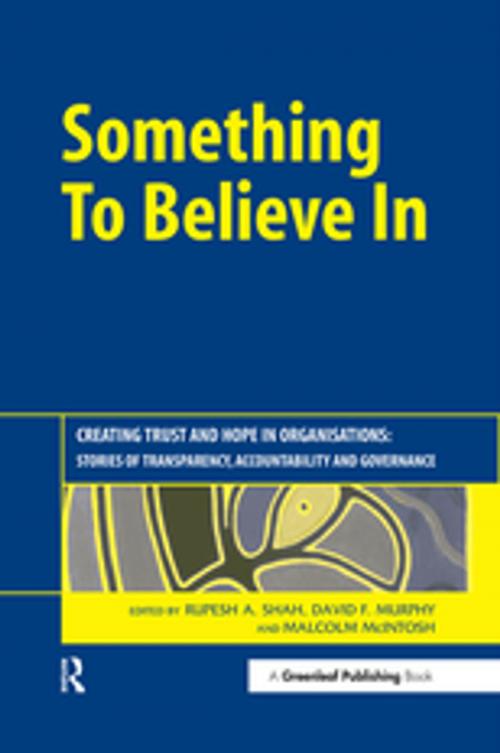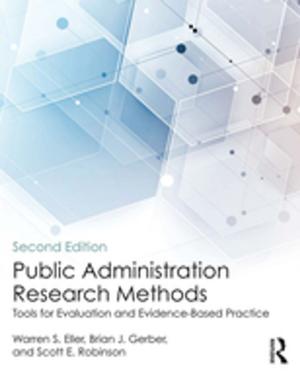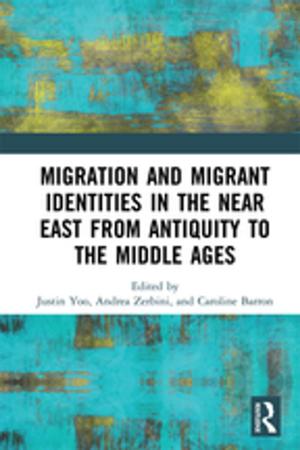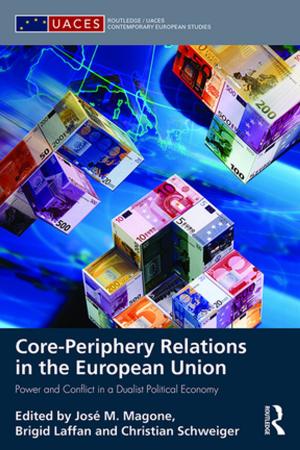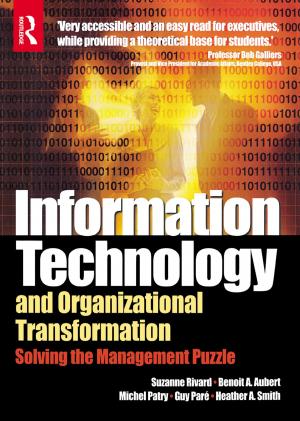Something to Believe In
Creating Trust and Hope in Organisations: Stories of Transparency, Accountability and Governance
Nonfiction, Science & Nature, Nature, Environment, Ecology, Business & Finance, Business Reference, Business Ethics| Author: | ISBN: | 9781351281300 | |
| Publisher: | Taylor and Francis | Publication: | September 29, 2017 |
| Imprint: | Routledge | Language: | English |
| Author: | |
| ISBN: | 9781351281300 |
| Publisher: | Taylor and Francis |
| Publication: | September 29, 2017 |
| Imprint: | Routledge |
| Language: | English |
In a world where trust in politicians, corporations and the processes that determine our lives continues to dwindle, this innovative book brings together research, case studies and stories that begin to answer a central question for society: How we can create organisations, institutions, groups and societies that can nurture trusting relationships with one another and among individuals?Something to Believe In provides a fresh take on the corporate responsibility debate, based as it is on the work of key global thinkers on corporate social responsibility, along with a raft of work developed from collaborations between the New Academy of Business and the United Nations Volunteers, UK Department for International Development and TERI-Europe in countries such as Brazil, Nicaragua, Ghana, India, Sri Lanka, Bangladesh, Lebanon, Nigeria, the Philippines and South Africa. The focus is on business, and particularly how deeper, more systemic changes to current ways of understanding and undertaking business can and have been enacted in both developed countries and in nations where the Western concept of CSR means nothing. The market-based model of economic thinking-the increasingly distrusted globalisation project-which threatens to sweep all before it is challenged by many of the contributions to this book.The book tells stories such as the mobilization of civil society in Ghana to bring business to account; the reorientation of a business school to focus on values; the life-cycle of ethical chocolate; the accountability of the diamond business in a war zone; the need to reinvent codes of conduct for women workers in the plantations and factories of Nicaragua; a Philippine initiative to economically empower former Moslem liberation fighters; and the development of local governance practices in a South African eco-village.The book is split into four sections. "Through Some Looking Glasses" contains short, thought-provoking pieces about the issues of trust, belief and change from writers including Thabo Mbeki, Malcolm McIntosh and a reprinted piece from E.M. Forster. Section Two asks how it will be possible to believe in our corporations and provides new approaches from around the world on how space is being opened up to found businesses that are able to create trust. Section Three examines the role of auditing in fostering trust. Corporations continue to attempt to engender trust through their activities in philanthropy, reporting and voluntary programmes. But, post-Enron et al., even the most highly praised corporate mission statements are tarnished. Can social and environmental audits of corporate reports, codes and practices assuage our doubts about boardroom democracy? Section Four examines alternative forms of accountability, transparency and governance from around the world and offers some different ways of thinking about the practice of creating trust in society.Something to Believe In provides a host of fascinating suggestions about redefining and renewing the underlying deal between society and its organizations. It will become a key text for students, thinkers and practitioners in the field of corporate responsibility.
In a world where trust in politicians, corporations and the processes that determine our lives continues to dwindle, this innovative book brings together research, case studies and stories that begin to answer a central question for society: How we can create organisations, institutions, groups and societies that can nurture trusting relationships with one another and among individuals?Something to Believe In provides a fresh take on the corporate responsibility debate, based as it is on the work of key global thinkers on corporate social responsibility, along with a raft of work developed from collaborations between the New Academy of Business and the United Nations Volunteers, UK Department for International Development and TERI-Europe in countries such as Brazil, Nicaragua, Ghana, India, Sri Lanka, Bangladesh, Lebanon, Nigeria, the Philippines and South Africa. The focus is on business, and particularly how deeper, more systemic changes to current ways of understanding and undertaking business can and have been enacted in both developed countries and in nations where the Western concept of CSR means nothing. The market-based model of economic thinking-the increasingly distrusted globalisation project-which threatens to sweep all before it is challenged by many of the contributions to this book.The book tells stories such as the mobilization of civil society in Ghana to bring business to account; the reorientation of a business school to focus on values; the life-cycle of ethical chocolate; the accountability of the diamond business in a war zone; the need to reinvent codes of conduct for women workers in the plantations and factories of Nicaragua; a Philippine initiative to economically empower former Moslem liberation fighters; and the development of local governance practices in a South African eco-village.The book is split into four sections. "Through Some Looking Glasses" contains short, thought-provoking pieces about the issues of trust, belief and change from writers including Thabo Mbeki, Malcolm McIntosh and a reprinted piece from E.M. Forster. Section Two asks how it will be possible to believe in our corporations and provides new approaches from around the world on how space is being opened up to found businesses that are able to create trust. Section Three examines the role of auditing in fostering trust. Corporations continue to attempt to engender trust through their activities in philanthropy, reporting and voluntary programmes. But, post-Enron et al., even the most highly praised corporate mission statements are tarnished. Can social and environmental audits of corporate reports, codes and practices assuage our doubts about boardroom democracy? Section Four examines alternative forms of accountability, transparency and governance from around the world and offers some different ways of thinking about the practice of creating trust in society.Something to Believe In provides a host of fascinating suggestions about redefining and renewing the underlying deal between society and its organizations. It will become a key text for students, thinkers and practitioners in the field of corporate responsibility.
